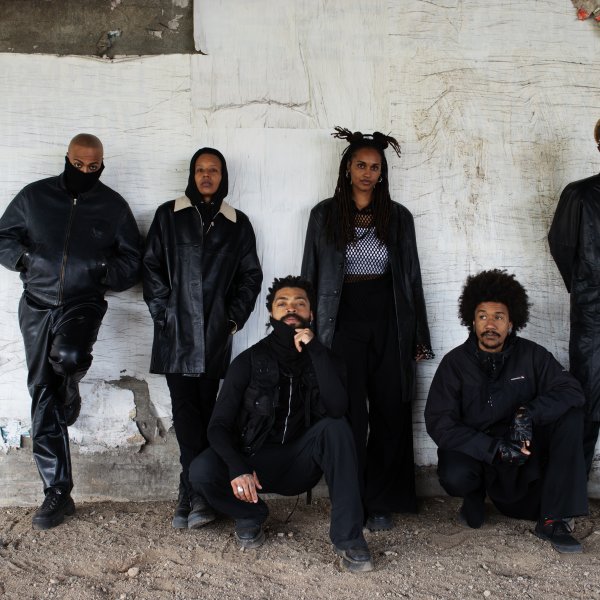Colonial Memory II. Tune in to the whispers. Public programme directed by Andrea Pacheco González and Yeison F. García López
- For:
- General public
- Price:
Free activity
Free admission until full capacity is reached
In a continuation of the conversations initiated during the international symposium Colonial memory, wounded civilisation, organised in 2024 conjunction with the exhibition Colonial Memory in the Thyssen-Bornemisza Collections, Andrea Pacheco González and Yeison F. García López, two of the curators of that exhibition, have designed a public programme with the aim of continuing to open up spaces for debate that question the colonial imaginaries and narratives present in the art system and Western culture.
For centuries, the peoples of Abya Yala and the African continent have maintained other ways of inhabiting time, both in practice and in memory: circular times that expand like rivers and fluctuate sinuously in spirals, cadences that resist the linearity imposed by modernity.
One of the fundamental issues for opening up the possibility of dismantling the violence of colonial history is to rethink time: to detach ourselves from the linear and progressive paradigm that has functioned as an instrument to justify hierarchies, dominations and accelerations that sweep away lives and memories. Western thought has established its reality in a type of time that advances like a conquest: a civilisational progress which, with its dazzling speeds, traps, exterminates and endangers the ecosystems on which life depends. It is not possible to sustain critical thinking about artistic practices and their institutions without questioning this temporal architecture, without rethinking the time we give and the time we allow ourselves, so that the processes of listening, remembering and repairing can be activated.
In this context, an approach based on a different temporal perspective is proposed for future conversations. On the one hand, this involves moving away from the historiographical framework that conceives of time as a continuous line of progress in order to explore the ideas of philosopher and theologian John Mbiti, who describes how some African peoples understand time as encompassing an extensive past and a present that is not only now but also future: a future that is not abstract but near, tangible, and experienced through what has not yet happened but is already felt. The aim is to learn to recognise oneself in other forms of time.
In this journey towards another temporal speed, the words of Cameroonian curator Koyo Kouoh are also taken as a guide, as he invites us to “tune in to the whispers in a low voice, to the lowest frequencies; to find the oases, the islands where the dignity of all living beings is still protected” in order to also allow ourselves to move at other rhythms.
Between December 2025 and July 2026 monthly lectures, performances, sound installations and film screenings given and presented by artists, theorists and professionals from diverse fields will encourage participants to tune in to these voices and the whispers that accompany them from that long, slow past, amplifying their murmur in the present. The aim is to recognise oneself in other forms of time, to move through other rhythms and to inhabit the possibilities of political and cultural reinterpretation offered by whispers, opacity, ambiguity and discontinuous existence.





